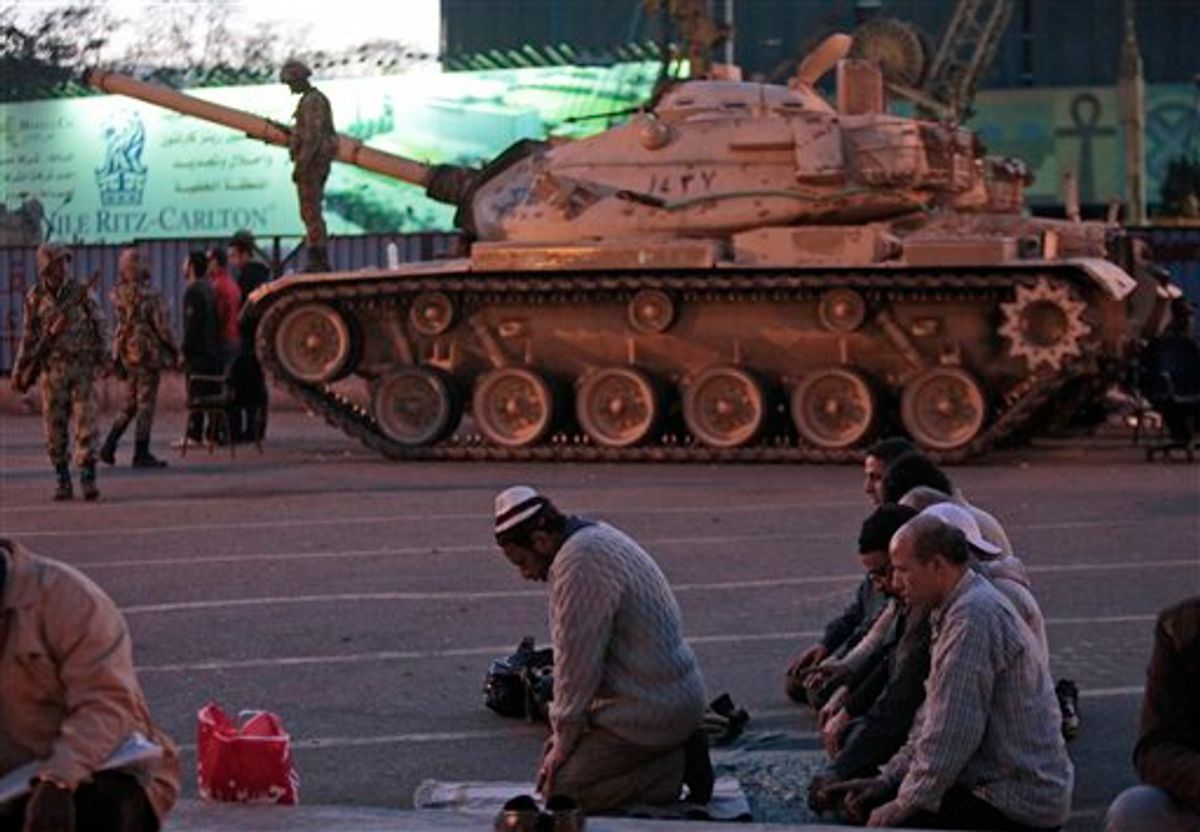With so many questions hanging in the air, many wonder about the future of the country and of the region at large.
How likely is an end to the Mubarak regime?
- This is the question. (BBC)
- While Mubarak replaced his cabinet with a whole host of new faces, protesters remain unabated in their anger at the government. Mubarak’s family reportedly fled the country as has a significant volume of foreign investment. However, an MSNBC blogger speculates that Mubarak will hang onto his position until its actually wrenched from his hands. (MSNBC )
- Many wondered about the Egyptian military's intentions and the extent of its loyalty to the embattled president. Now, apparently, the military will not crack down on protesters tomorrow during a planned "march of one million," which some speculate could mean trouble for Mubarak. (Wired)
- Former U.S. president Jimmy Carter said that the people of Egypt have spoken and Mubarak will need to step down. (CBS)
How would a Mubarak ouster impact Egypt and the region at large?
- Mohamed ElBaradei could be the natural replacement for Mubarak. Though moderate and democratic, the Nobel Laureate has the support of the Muslim Brotherhood, making some western observers nervous. (Time)
- The Muslim Brotherhood could come to power after the collapse of the Mubarak regime. (The Guardian)
- The blog Left Foot Forward argues that fears about the Muslim Brotherhood seizing power are both misplaced and overstated. (Left Food Forward)
- A column in the Jerusalem Post speculated that whatever government might emerge in the aftermath of a Mubarak abdication would be unlikely to maintain its peace treaty with Israel. (JP)
- Other authoritarian regimes in the region could find their positions increasingly in danger if Egypt successfully transitions to a stable democracy (Atlanta Journal Constitution)
How should the Obama administration respond to the unrest?
- The Obama administration finds itself in a difficult position with regards to Egypt. Caught between support for democratic reforms and interest in regional stability, the President faces heavy criticism for his handling thus far of the situation. (The Guardian)
- Egyptian protesters themselves remain ambivalent about U.S. involvement in their revolution. (AP)
- Several protests across the U.S. urged President Obama to call for the end to the Mubarak regime. (Mail Online)
- Leslie H. Gelb of the Daily Beast argues for “the devil we know” as opposed to a potentially antagonistic regime run by Egyptian opposition, saying President Obama should urge stability rather than upheaval. (Daily Beast)
- Gelb’s colleague Peter Beinhart, by contrast, believes its time for the U.S. to stop propping up authoritarian regimes in the name of stability. (Daily Beast)

Shares